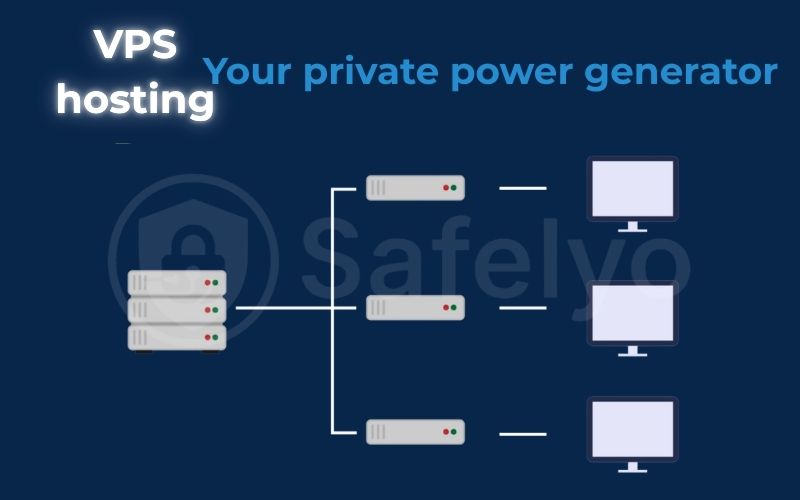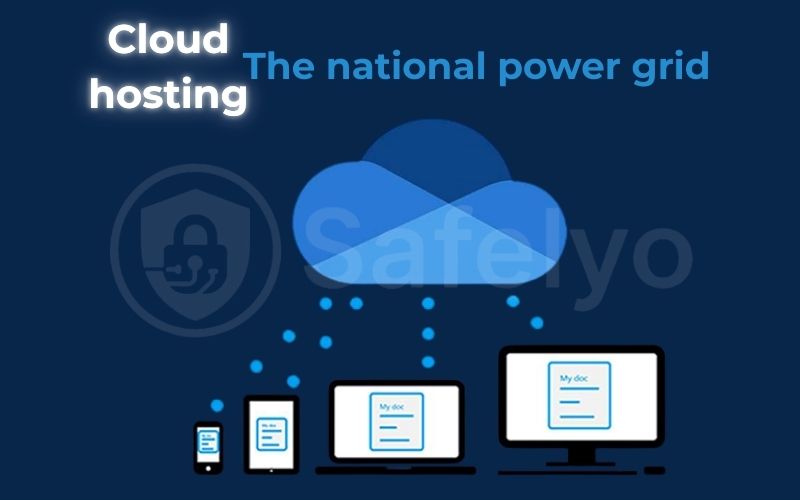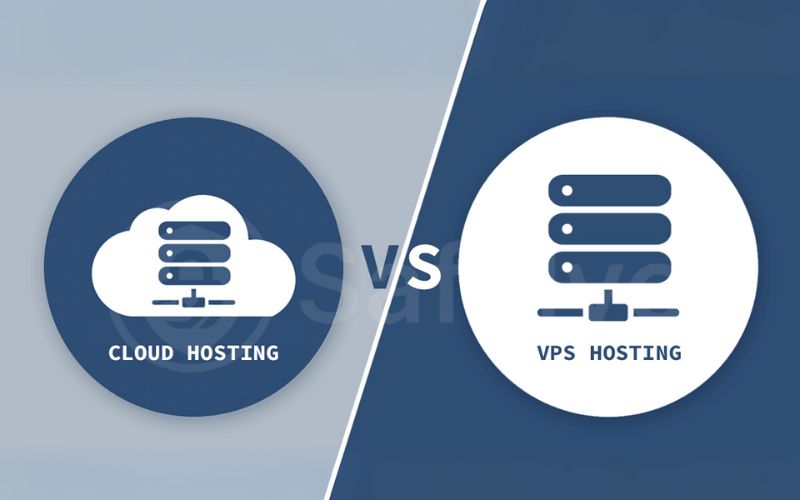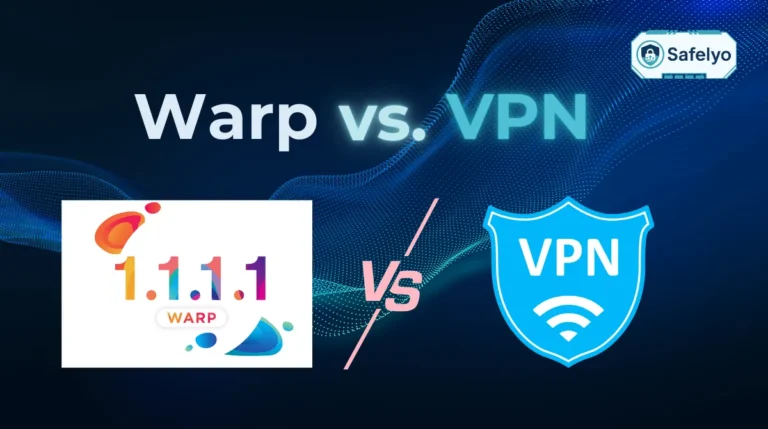Think of your hosting choice as the architectural foundation for your digital project. You’ve moved beyond the basics and now require a more robust structure, but the blueprints for the next step – VPS hosting vs cloud hosting – can be incredibly confusing.
In today’s fast-moving digital landscape, choosing the right infrastructure is critical. Your decision impacts everything from your website’s performance and reliability to your ability to scale during sudden traffic spikes. Yet many providers use these terms interchangeably, leaving you to wonder what the real differences are.
As an infrastructure consultant, I’ve designed and scaled systems for growing businesses. I’ve seen projects stall not due to a lack of vision, but because they were built on the wrong foundation. Choosing between a VPS and the cloud isn’t just a technical preference; it’s a strategic decision about your project’s future.
In this comprehensive guide, you’ll discover:
- A simple “Power Grid” analogy to instantly clarify the core architectural difference.
- The real-world impact on scalability, uptime, and performance.
- A clear answer to the common question: “Is a VPS a cloud server?“
- A decision guide to help you choose the right path for your specific needs.
Don’t let confusing terminology dictate your project’s potential. Let me guide you in building a foundation that’s ready for whatever comes next.
1. The real difference between VPS and cloud hosting
Over the years, I’ve found that the best way to grasp the fundamental difference between VPS and cloud hosting isn’t with complex diagrams, but with a simple analogy everyone understands: Your home’s electricity.
1.1. VPS hosting: Your private power generator
A traditional VPS (Virtual Private Server) is like having your own powerful, private diesel generator installed right next to your house.
It’s a fantastic setup in many ways. You get a guaranteed amount of power (dedicated resources like CPU and RAM) that isn’t affected by your neighbors’ usage. The performance is consistent and predictable, and you have full control over the machine. It’s a robust and self-contained solution.
However, it has one critical vulnerability: It’s a single point of failure. If that one generator breaks down, needs maintenance, or runs out of fuel, your power is out completely. To get more power (scalability), you can’t just flip a switch. You have to go through the significant process of upgrading to a bigger, more expensive generator.

1.2. Cloud hosting: The national power grid
Cloud hosting, on the other hand, is like being connected to the entire national power grid. Your electricity comes from a vast, interconnected network of multiple power plants (servers). This introduces two game-changing advantages:
- High Availability & Redundancy: This is the essence of high availability hosting. If one power plant goes down for maintenance, the grid automatically and instantly reroutes electricity from other plants in the network. You, the homeowner, never even notice a flicker. This concept of redundant hosting eliminates the single point of failure.
- Effortless Scalability: Imagine you’re throwing a massive party and suddenly need three times the usual amount of power. Instead of buying a new generator, you simply draw more electricity from the grid for a few hours. This is the magic of VPS vs cloud scalability. Cloud platforms are designed to handle sudden traffic spikes by allocating more resources on demand. You often only pay for the extra power you actually use, a model known as pay-as-you-go hosting.
The Key Takeaway
The core difference in the VPS hosting vs cloud hosting debate is resilience and flexibility.
- A VPS is a powerful, isolated slice of a single server.
- Cloud hosting is a resilient, scalable service delivered by a network of servers working together.

2. Is a VPS a cloud server?
This is the million-dollar question, and the one that causes the most confusion for buyers. So, is VPS a cloud server? The honest answer is: It depends on the provider, because the lines have blurred significantly.
Traditionally, the answer was a clear “no.” A VPS was a partition on a single physical machine, and cloud hosting was a service from a network of machines.
However, the technology and marketing have evolved. Today, many (if not most) modern hosting providers sell plans they label as “VPS” that are actually built on top of their cloud infrastructure. They use the reliability and scalability of their cloud network but package it in a way that’s familiar and simple for consumers.
I’ve seen this firsthand when provisioning servers. The product is called “VPS Plan 2.” However, when you explore the architecture, you’ll find it includes failover and migration capabilities, which are hallmarks of a true cloud environment.
How to tell the real difference (and why it matters):
Instead of getting hung up on the marketing name, I advise clients to look at two key features to understand what they’re truly buying:
- Look at the Scalability: Does the provider allow you to instantly add more CPU/RAM with a simple slider or API call, with changes happening in minutes? Or do you have to submit a request and migrate to a completely new, pre-defined “plan”? Instant, granular scaling is a hallmark of true cloud hosting.
- Look at the Pricing Model: Is it a simple, flat monthly fee for a fixed set of resources? This is the traditional VPS model. Or is the pricing a more complex, pay-as-you-go model based on hourly or even per-second usage of CPU, RAM, and bandwidth? This pay-as-you-go hosting model is native to the cloud.
The Verdict
Don’t get lost in the terminology. The debate has shifted. The most important question isn’t “Is it called a VPS or Cloud?” but rather, “Does this hosting plan offer the high availability and on-demand scalability my project needs?” Focus on the features, not just the label.
3. The ultimate showdown: A visual comparison
Now that we understand the “Power Grid” analogy and the market confusion, let’s put traditional VPS hosting vs cloud hosting head-to-head in a direct comparison. Each model has distinct advantages depending on your project’s needs for stability, growth, and budget. This table breaks down the core differences.
| Feature | VPS Hosting (Private Generator) | Cloud Hosting (Power Grid) |
| Architecture | A private partition on a single physical server. | A virtual server running on a network of multiple interconnected servers. |
| Reliability / Uptime | Good, but has a single point of failure. If the host server hardware fails, your VPS goes down with it. | Excellent. Offers high availability and redundancy. Hardware failure on one node won’t cause downtime. |
| Scalability | Good (Vertical Scaling). You can upgrade to a plan with more resources, but it often requires a reboot or migration. | Excellent (Vertical & Horizontal Scaling). You can instantly add resources and often scale across multiple servers to handle extreme loads. |
| Performance | Consistent & Predictable. You get a fixed amount of resources, so performance is stable as long as you stay within your limits. | Handles Traffic Spikes Better. The ability to draw resources from the entire network makes it superior for handling sudden, high-demand events. |
| Pricing Model | Predictable. Usually, a fixed monthly fee is great for budgeting. The VPS vs cloud pricing is a key differentiator. | Flexible. Often, a pay-as-you-go hosting model is used, but this can be complex and harder to predict for budgeting. |
| Best For… | Websites with predictable traffic, applications needing a stable environment, and users with fixed budgets. | High-traffic websites, e-commerce stores, applications that need to scale on demand, and mission-critical projects where uptime is paramount. |
4. Which hosting is right for you?
Theory is great, but now it’s time to make a decision for your project. The best choice in the VPS hosting vs cloud hosting debate comes down to a single question: What is your top priority?
I use this decision matrix with my clients to quickly cut through the options and identify the right path forward. Find your primary need in the left column to get our direct recommendation.
| If Your Top Priority Is… | The Better Choice Is… | Why? |
|---|---|---|
| A Predictable, Fixed Monthly Bill | VPS Hosting | The traditional VPS model offers a flat monthly fee for a set amount of resources. This makes budgeting simple and predictable, with no surprise charges. |
| Maximum Uptime and Reliability | Cloud Hosting | This is the core strength of cloud hosting. Its redundant hosting nature means hardware failure on one server won’t take your site down. This is the definition of high availability hosting. |
| Handling Sudden Traffic Spikes | Cloud Hosting | The VPS vs cloud scalability is a key difference. If your site gets featured on the news or runs a viral marketing campaign, the cloud can scale resources instantly to meet that demand without crashing. |
| Simplicity and a Traditional Server Feel | VPS Hosting | Managing a single, self-contained VPS is often more straightforward and familiar. The environment is predictable, which can be a plus for those with traditional server management experience. |
| Long-Term Flexibility and Growth | Cloud Hosting | It’s the more future-proof option. A platform built on cloud hosting can grow seamlessly with your project, from a small application to a globally distributed, enterprise-scale service, without needing major migrations. |
By focusing on what matters most to your project right now, you can confidently choose the hosting philosophy that will best support your goals.
5. VPS vs. cloud for WordPress: Which is better?
The VPS vs cloud for WordPress question is one I get asked constantly, and the answer truly depends on the nature of the WordPress site itself. Let’s break it down into two common scenarios.
Scenario 1: The stable, predictable WordPress site
If your WordPress site has relatively stable and predictable traffic, consider a high-quality VPS. This is a fantastic and cost-effective choice for corporate brochure sites, professional portfolios, or blogs with a steady readership.
You get a guaranteed set of resources that ensures your site performs consistently for your regular audience. Since you don’t expect massive, unpredictable surges in visitors, the extreme scalability of the cloud would be overkill. A VPS provides the perfect balance of power, control, and predictable pricing for this type of project.
Scenario 2: The dynamic, high-growth WordPress site
Now, consider a different type of site:
- An e-commerce store running WooCommerce that gets huge traffic spikes on Black Friday.
- A news or media site that might have an article go viral overnight.
- A large membership site with thousands of users logging in and interacting.
For these dynamic websites, cloud hosting is the vastly superior option.
Its core ability to handle sudden demand without crashing is invaluable. The last thing you want is for your online store to go down the moment a sales campaign takes off. Furthermore, many of the best-managed WordPress hosting providers, like Kinsta and WP Engine, have built their entire platforms on top of powerful cloud infrastructure (like Google Cloud or AWS). They give you the best of both worlds: the immense power and reliability of the cloud, combined with a simple, managed interface optimized specifically for WordPress.

6. FAQ about the VPS hosting vs cloud hosting showdown
The world of hosting is full of similar-sounding terms, and the line between VPS and Cloud can be blurry. Here are clear answers to the most common questions people ask when making this crucial decision.
Is cloud hosting better than web hosting?
This is a common point of confusion. “Web hosting” is a general category, not a specific product. Both VPS and Cloud hosting are types of web hosting. However, compared to the most basic type (Shared Hosting), yes, cloud hosting is significantly better in every way – performance, reliability, and security.
Is VPS better than shared hosting?
Yes, from a technical standpoint, VPS is a major upgrade from shared hosting. It provides guaranteed private resources, a more secure and isolated environment, and far more control. The trade-off is that it costs more and requires a bit more technical knowledge to manage.
Is cloud hosting better than VPS?
It depends on your top priority. Cloud hosting is better for reliability and scalability, as its network of servers prevents downtime from single hardware failures and can handle sudden traffic spikes. VPS hosting is often better for its simple, predictable monthly pricing and more traditional server environment.
What is VPS in cloud hosting?
This refers to a popular hybrid model often called a “Cloud VPS.” It means you get a virtual private server with the simple, fixed-resource plan of a traditional VPS, but it runs on the highly reliable, multi-server infrastructure of the cloud. This model gives you the best of both worlds: predictable costs and excellent uptime.
Which is cheaper, VPS or cloud?
For predictable workloads, a VPS with a fixed monthly price is often cheaper upfront. However, for websites with unpredictable traffic, the pay-as-you-go hosting model of the cloud can be more cost-effective because you only pay for the resources you actually use.
Which has better performance, VPS or cloud?
In the VPS vs cloud performance debate, cloud hosting generally has the edge. While a VPS provides consistency, the cloud excels at distributing traffic and utilizing resources from a large network. This makes it far better at handling high loads and traffic spikes without slowing down.
7. Conclusion
The choice in the VPS vs cloud hosting debate is ultimately a decision between predictable stability and dynamic flexibility. It’s about matching the architecture of your hosting to the ambition and needs of your project.
Here are the key takeaways to remember:
- A VPS is a private slice of one server; it’s great for predictable costs and stable traffic.
- Cloud hosting is a network of servers; it’s unbeatable for reliability and on-demand scalability.
- Your choice depends on your project’s needs: choose VPS for stability, choose Cloud for growth and unpredictability.
- The market is blending, with many “Cloud VPS” options offering the best of both worlds.
Don’t just choose a hosting plan; choose an infrastructure philosophy that aligns with your project’s goals. A stable foundation is key to building a successful online presence. Now that you understand the different hosting types, explore the guides on server security in our Privacy & Security Basics category from Safelyo to protect your new hosting environment.












